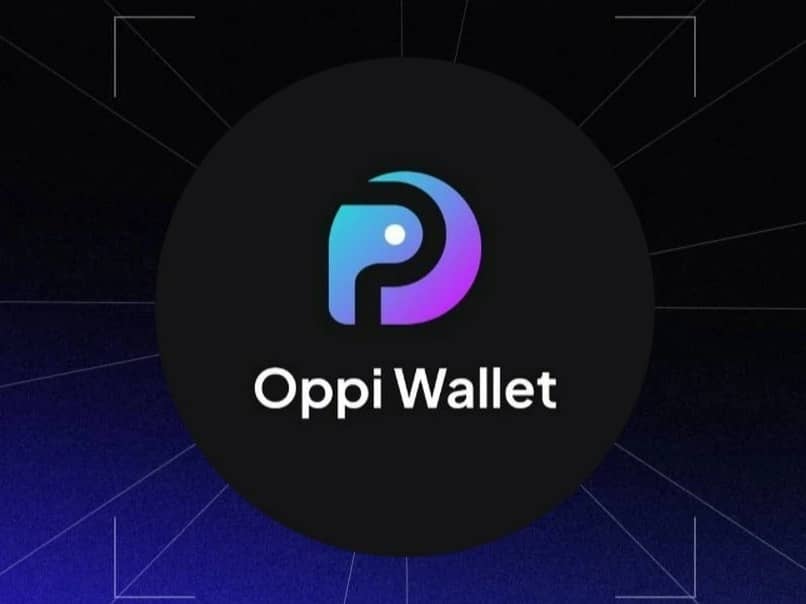위키 구독하기
Share wiki
Bookmark
Oppi Wallet
0%
Oppi Wallet
Oppi Wallet은 사용자가 다양한 암호화폐를 관리, 거래 및 사용할 수 있도록 하는 다중 통화 디지털 지갑 플랫폼입니다. 이 서비스는 가상 암호화폐 카드를 통합하여 VISA 또는 Mastercard를 허용하는 가맹점에서 디지털 자산을 사용할 수 있도록 합니다. 이 플랫폼은 가상 자산 서비스 제공업체(VASP)로 등록되어 재정 투명성 및 보안에 대한 규제 표준 준수를 나타냅니다. [1]
개요
Oppi Wallet은 디지털 자산 관리와 기존 금융 거래를 연결하도록 설계되었습니다. 비트코인 (BTC), 이더리움 (ETH) 및 USDT와 같은 스테이블 코인을 포함한 다양한 암호화폐를 구매, 판매, 저장 및 교환할 수 있는 단일 애플리케이션을 제공합니다. 이 플랫폼의 핵심 기능은 사용자의 암호화폐 보유액을 온라인 쇼핑, 매장 내 결제 및 기타 거래에 사용할 수 있는 결제 카드에 연결하는 가상 암호화폐 카드입니다. [1]
이 서비스는 개인 암호화폐 사용자와 기업 모두를 대상으로 합니다. 개인에게는 포트폴리오 관리 및 일상적인 지출을 위한 도구를 제공합니다. 기업의 경우 Oppi Wallet은 급여, 공급업체 결제 및 즉각적인 거래 완료를 통한 국경 간 결제와 같은 암호화폐 기반 운영을 용이하게 하기 위한 전용 포털을 제공합니다. 이 플랫폼은 웹 애플리케이션으로 제공되며 Apple App Store 및 Google Play Store를 통해 모바일 장치에서도 사용할 수 있습니다. 2024년 말 현재 회사는 전 세계적으로 10만 명 이상의 사용자를 확보했다고 주장했습니다. [1]
역사
Oppi Wallet의 공개 출시 기간은 2024년 5월에 시작되었으며, 공식 X(이전 Twitter) 계정 생성과 2024년 5월 7일 Apple App Store에 애플리케이션이 처음 출시된 것이 특징입니다. 출시 전후에 이 플랫폼은 블록체인 보안 회사인 Cyberscope에서 보안 감사를 받았으며, 그 결과 웹사이트에 "규정 준수 확인" 인증이 표시되었습니다. [1]
2025년 내내 이 프로젝트는 소셜 미디어 채널을 사용하여 다양한 기능을 발표하고 홍보했습니다. 2025년 6월 10일, X에 게시된 게시물에서는 사용자가 Oppi Wallet 잔액을 사용하여 항공편을 예약할 수 있는 기능을 강조했습니다. 2025년 7월 18일, 회사는 카드 보안 기능, 특히 앱 내에서 즉시 동결 및 해제할 수 있는 기능을 홍보했습니다. 2025년 8월 5일의 후속 통신에서는 솔라나 (SOL), 비트코인 (BTC) 및 USDT를 포함한 자산에 대한 플랫폼의 낮은 거래 수수료를 강조했습니다. 2025년 8월 11일, 게시물에서는 거래 내역을 보고 필터링하는 지갑의 기능을 선보였습니다. [2]
특징
Oppi Wallet의 기능은 자산 관리, 거래 및 실제 지출 기능에 중점을 둡니다. 비즈니스 중심 솔루션도 제공됩니다.
자산 관리 및 거래
이 지갑은 비트코인 (BTC), 이더리움 (ETH), USDT 및 솔라나 (SOL)를 포함한 여러 암호화폐의 저장, 전송 및 수신을 지원합니다. 여기에는 사용자가 디지털 자산의 실시간 성능을 모니터링할 수 있는 포트폴리오 추적기가 포함되어 있습니다. [1] [2]
이 플랫폼은 신용/직불 카드, 은행 송금, Apple Pay 및 PayPal과 같은 다양한 결제 방법을 통해 암호화폐의 직접 구매 및 판매를 용이하게 합니다. 주요 거래 기능은 즉각적인 스왑 기능으로, 사용자가 지원되는 수백 개의 암호화폐 자산 간에 교환할 수 있습니다. 회사는 이러한 스왑이 낮은 수수료로 경쟁력 있는 시장 가격으로 실행된다고 밝혔으며, 마케팅 게시물에서 "페니" 비용이 든다고 설명했습니다. 사용자는 날짜 및 특정 코인별로 필터링할 수 있는 자세한 거래 내역을 볼 수도 있습니다. [1] [2]
가상 암호화폐 카드
Oppi Wallet은 사용자에게 암호화폐 잔액에 직접 연결된 가상 결제 카드를 생성하는 기능을 제공합니다. VISA 또는 Mastercard 네트워크에서 작동하는 이 카드는 100개국 이상에서 온라인 구매, 매장 내 결제 및 ATM 인출에 사용할 수 있습니다. 월별 또는 연간 수수료가 없는 수수료 구조로 판매됩니다. [1] [2]
카드의 주요 보안 기능은 사용자가 Oppi Wallet 애플리케이션 내에서 즉시 동결 및 해제할 수 있는 기능으로, 분실 또는 무단 사용이 의심되는 경우 제어 기능을 제공합니다. [2]
비즈니스용 Oppi
이 플랫폼에는 기업이 암호화폐를 재무 운영에 통합하려는 기업을 위해 설계된 포털인 "비즈니스용 Oppi"라는 솔루션이 포함되어 있습니다. 이 서비스의 광고된 사용 사례에는 기업 급여 관리, 공급업체 결제 및 즉각적인 결제의 이점을 통해 국경 간 결제 수행이 포함됩니다. [1]
계획된 기능
회사는 "Earn & Grow" 기능에 대한 계획을 발표했습니다. 이 서비스는 사용자가 시간이 지남에 따라 보상이나 이자를 생성하기 위해 지갑 내에서 암호화폐를 스테이킹하거나 보유할 수 있도록 하기 위한 것입니다. [1]
기술 및 보안
Oppi Wallet의 아키텍처 및 보안 프로토콜은 금융 규정을 준수하면서 사용자에게 디지털 자산 관리 도구를 제공하도록 구축되었습니다.
지갑 아키텍처
지갑의 디자인은 비보관 및 보관 시스템의 요소를 모두 통합하는 하이브리드 모델인 것으로 보입니다. 웹사이트에서는 사용자가 "암호화폐 키를 100% 제어할 수 있다"고 주장하며, 이는 사용자가 자산 보안에 전적으로 책임이 있는 비보관 지갑의 특징입니다. [1]
그러나 다른 플랫폼 기능은 제공업체가 사용자를 대신하여 자산을 보유하는 보관 서비스의 일반적인 기능입니다. 여기에는 고객 알기(KYC) 절차, VASP 인증 및 중앙에서 관리하는 가상 카드 발급이 포함됩니다. 가능한 운영 모델은 사용자가 기본 지갑에 대한 자체 보관을 유지하는 반면, 거래 또는 가상 카드에 로드하기 위해 지정된 자금은 Oppi Wallet에서 관리하는 규제된 보관 계정으로 이체된다는 것입니다. [1]
보안 조치
Oppi Wallet은 사용자 계정 및 자금을 보호하기 위해 여러 보안 조치를 사용합니다. 이 플랫폼은 종종 "은행 등급" 암호화라고 하는 AES-256 암호화를 사용합니다. 계정 액세스는 지문 또는 얼굴 인식을 통한 필수 2단계 인증(2FA) 및 생체 인식 로그인을 통해 더욱 안전하게 보호됩니다. 플랫폼의 스마트 계약 및 인프라는 Cyberscope에서 타사 보안 감사를 받았습니다. [1]
규정 준수
Oppi Wallet은 가상 자산 서비스 제공업체(VASP)로 등록되어 있습니다. 이 등록을 통해 플랫폼은 국제 자금 세탁 방지 표준에 따라 재정 투명성을 보장하고 사용자를 보호하도록 설계된 규제 프레임워크를 준수해야 합니다. 이러한 의무를 충족하기 위해 플랫폼은 완전한 고객 알기(KYC) 및 자금 세탁 방지(AML) 절차를 통합했습니다. 이러한 검사는 암호화폐 구매 및 판매와 가상 카드 사용을 포함한 금융 서비스에 액세스하기 위한 전제 조건입니다. [1]
채택 및 가용성
공식 웹사이트에 따르면 Oppi Wallet은 2024년 말까지 전 세계적으로 10만 명 이상의 사용자를 확보했습니다. 이 플랫폼의 서비스는 웹 애플리케이션과 Apple App Store 및 Google Play Store에서 각각 사용할 수 있는 iOS 및 Android용 모바일 앱을 통해 액세스할 수 있습니다. 회사는 또한 4.7점의 평점을 인용하는데, 이는 아마도 앱 스토어 목록에서 집계된 것일 것입니다. [1]
2025년 말 현재 공식 Oppi Wallet X 계정은 3,100명 이상의 팔로워를 확보했습니다. 이 프로젝트는 커뮤니티 봇을 통해 Telegram에서도 존재합니다. [2]
잘못된 내용이 있나요?
